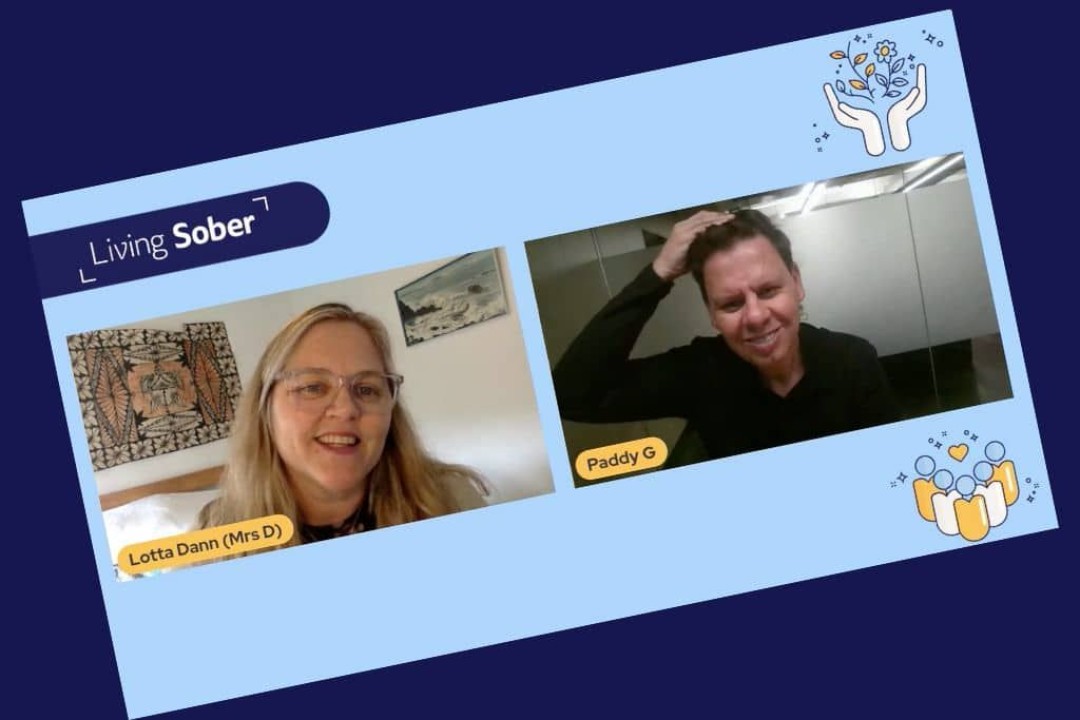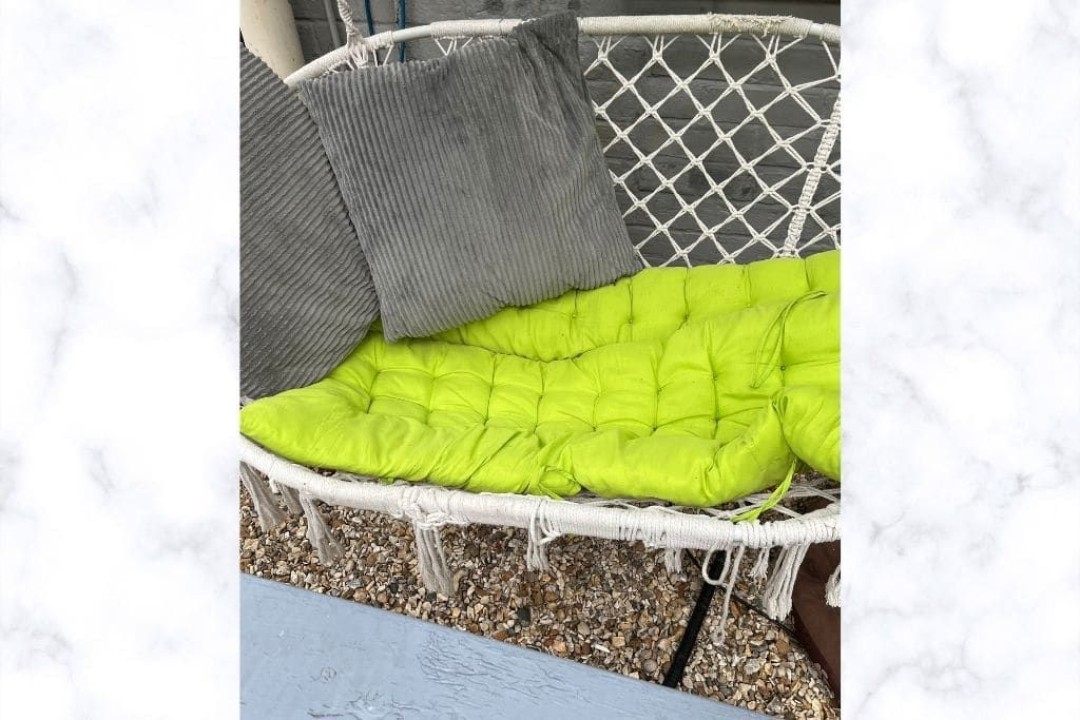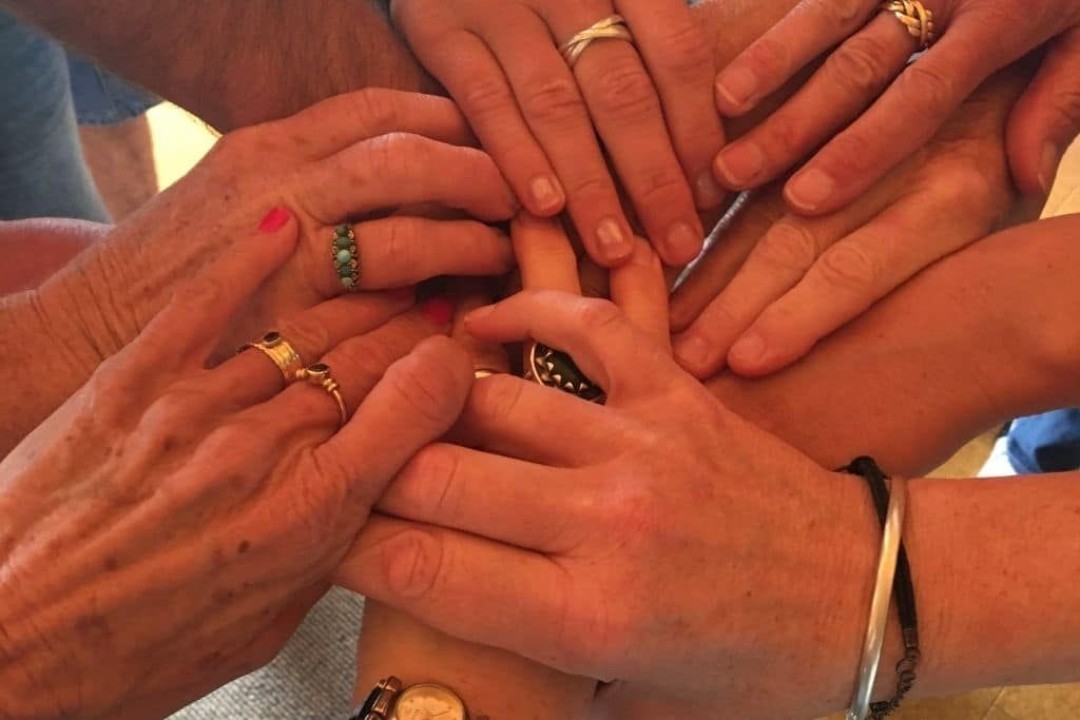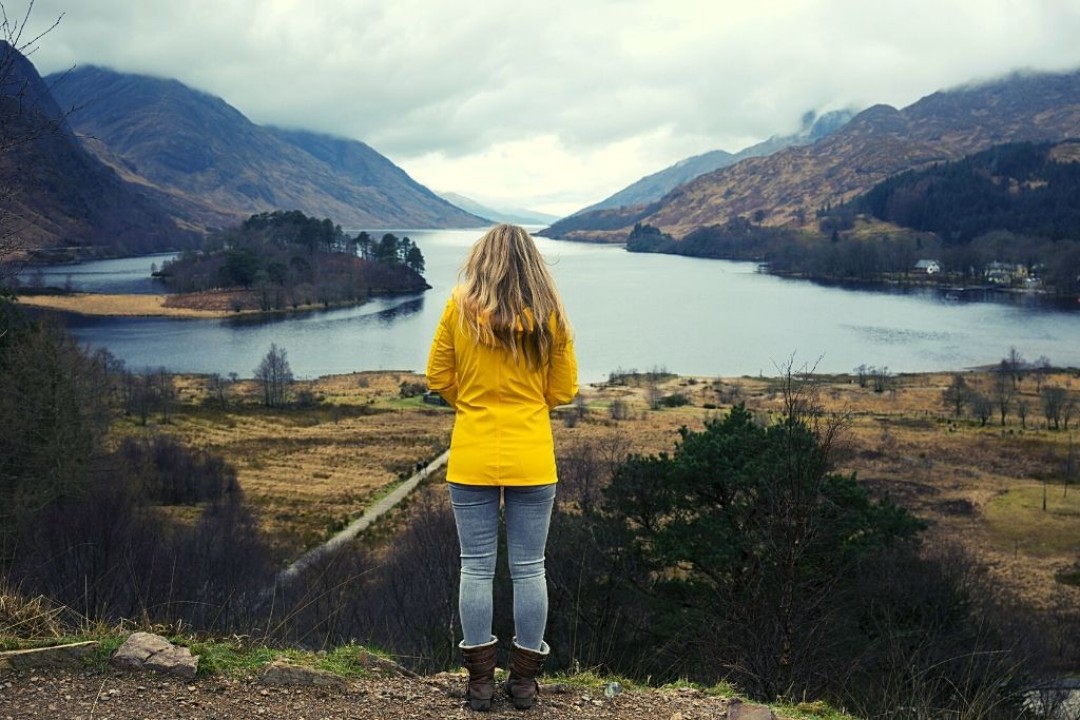Sober Story: Claire
February 5th, 2020 Interviews 14 comments
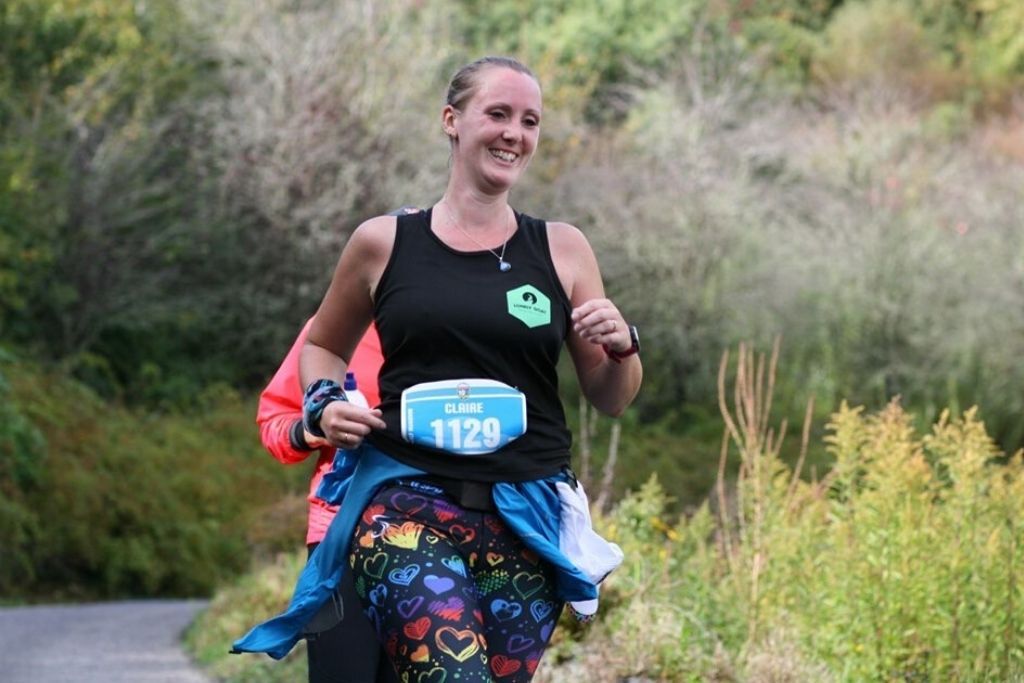
This week’s Sober Story comes from Claire, a 37-year-old living in Cornwall, UK.
===========
Mrs D: How long have you been in recovery?
Claire: I had my very last drink on 7th September 2016. So three years and almost 5 months, not that I am keeping count!
Mrs D: What can you tell us about the last months/years of your drinking before you gave up?
Claire: Admitting I was an alcoholic was a huge thing for me. For a long time I doubted myself for thinking I had a problem. I had a job, I had a husband, three kids (now four) and a clean house. I didn’t fit what I thought a typical alcoholic looked like, and I didn’t drink in the day so I played it down and told myself I was over-reacting. Living with severe anxiety, I assumed others would think I was attention seeking, and making something out of nothing. Drinking was the only way I could quieten my mind down, and the reason I knew I could make it through a day, knowing a bottle or two would be waiting for me at the end.
Mrs D: So how did things progress?
Claire: My drinking problem crept up slowly, for a long time it was just a glass a night, then two, then two bottles. It didn’t happen overnight and I didn’t notice until it was too late, but at the end, in the last few years I was drinking over two bottles of wine by myself every single night. I hid my recycling, I took it in the car to the recycling bank rather than have the neighbours hear it. Life began to revolve around getting home for wine o’clock but I still didn’t really think I had a problem, because the kids were happy, and the house was clean. Much as it relieved my anxiety in the evenings, the wine I was drinking only succeeded in making me worse long term. So the more I worried, the more I drank. Once the cycle had started, I couldn’t stop it, and as I said, at the time, I didn’t see how serious it was. The only thing I knew for certain was that the idea of stopping drinking terrified me, I just couldn’t see a life for me without wine.
Mrs D: What was the final straw that led you to get sober?
Claire: I had a string of health issues, nothing hugely serious in the end, but each one of them a worry, and each one of them made me question the amount I was drinking. Every time I went to the doctors surgery I felt like the addiction awareness posters were there just for me. My appetite disappeared, and I lost a lot of weight. My anxiety peaked and I felt like a nervous wreck. I struggled to go out, I felt on edge all the time, except when I had a drink, and then I started to black out. That was the final straw really, as I couldn’t cope with not knowing what I had said or done, I felt like I was losing my mind. I’d promise myself I’d only have a couple of drinks but that limit never worked, every night was the same. The next morning I’d try to piece together what I had watched, said, or been told. It was horrible. I was terrified to admit I was an addict, and so unsure of a way forward in my life. I knew I was poisoning myself, but I couldn’t stop.
Mrs D: How was it for you in the early days? What was most difficult?
Claire: It was hard. Probably the hardest thing I had ever done. I was afraid life would never be the same. I struggled with the extra time I had now I wasn’t drinking all evening and with all the extra thoughts whizzing around in my head now there was nothing to numb them. It was a challenge every single day. Not only was the wine habit gone, but the relief I felt, the release and relaxation I got from drinking was gone too and I knew I would never get it back. At least, not in the same way. I thought I would be boring, or at least that I would be perceived as boring. I struggled to see the positives I was getting for my health, and my anxiety became a lot more unpredictable. Before I was anxious all the time, without the wine, it came and went and I didn’t know how to stabilise it. I felt like I didn’t know who I was anymore and I hated the way it made me question everything.
Mrs D: That sounds really tricky. How did your family & friends react when you started getting sober?
Claire: My husband was totally supportive. I was and am very lucky to have him, he has put up with a lot from me and still does. We didn’t tell our kids until they began to ask questions. Naively I thought I had kept it well hidden from them, and maybe in some ways I did, because they didn’t know the full extent of things, and were used to me drinking. Now though, since them asking, I have been totally honest about everything and they are very supportive. My fourteen year old actually calls me inspirational, he says if I can stop drinking it makes him feel like he can do anything. The kids are 18, 16, 14 and 2 now and I hope I’ve helped them see that even horrible challenges like addiction can be overcome.
Mrs D: I love what your 14-year-old said! How were your wider family with things?
Claire: My parents were tricky. I’d grown up with family who ‘enjoyed a drink’, aunts, uncles, everybody. So drinking for us was normal. When I first told my parents, they seemed disappointed, and actually said it was a shame I couldn’t enjoy a nice drink again. That was hard. About a year into my sobriety I went for dinner at their house with my husband and kids and when asked what I’d like to drink they offered me milk as a ‘joke’. That was strange. About two years into my sobriety we went for Christmas, and they offered me wine with dinner. The bottles were on the table for us. I had to remind them that as an alcoholic I don’t drink any alcohol. They were surprised, and that was just bizarre, but now they seem to get it. Most of the time. I can’t expect everyone to get it, because not everyone has a problem with alcohol like I do and my problem isn’t their fault.
Mrs D: That’s so true.
Claire: My friends are a different story entirely. I had a few close friends and a lot of acquaintances before. During recovery I just shut myself off. It was a bit like hibernation. I didn’t want to socialise, I didn’t want to explain and I just wanted to be at home with the people who understood my random bouts of crying that I couldn’t explain. I felt like the people who had known me before didn’t really know the real me so I cut myself off, I purged my friends lists and battened down the hatches. It took about two and a half years to start to trust that people weren’t all out to get me and some of them actually liked me. I started writing my blog around the three years sober mark. I’d wanted to before and had been worried people would judge me. I wrote a post and it got shared, and shared again, and then someone I knew saw it, and then someone else, and then my mum. It was a shock, but suddenly my secret was out and it felt amazing. It wasn’t the way I would choose to do it, but it was a real relief to think it wasn’t a secret anymore.
Mrs D: Have you ever relapsed?
Claire: Not this time, but it was my third attempt at getting sober, so yes on the first two I did relapse, and it made getting sober for good a lot harder. I think it reinforced everything I already thought about my inability to cope without wine in my life.
Mrs D: How long did it take for things to start to calm down for you emotionally & physically?
Claire: Physically, probably within the first year. I definitely felt a lot better very soon. Emotionally I think it was a good two and a half years. I know that sounds a long time, but I also took a long time to get into the mess I was in so realistically it was going to take a while to sort myself out. Not having a buffer for my feelings was tricky as it meant I had to deal with everything and I didn’t like that. It was challenging and felt like I was relearning a lot of things every single day. I doubted myself and when I’d least expect it I would either have a panic attack or I’d remember something drunk me had done and it would send me spinning down into the doom and gloom of my mind. At the three year mark something changed and I also began to write my blog, which really helped. I found working through things by writing them down and talking to others really helped me come to understand myself.
Mrs D: I can relate to the power of blogging and getting your thoughts out – it’s very healing.
Claire: Now I know that I might not get things right all the time, but I am doing my best, and everything is me, not influenced by a bottle. It’s quite a nice feeling.
Mrs D: How hard was it getting used to socialising sober?
Claire: I avoided going out for a long time. I’d cut myself off from a lot of people and to be honest, I didn’t really go out that much before, drinking at home was more my scene. To start with I felt like I was the only one not drinking, but soon I came to realise that other people also didn’t drink, and actually, not everyone was bothered about what I was or wasn’t drinking.
Mrs D: Was there anything surprising that you learned about yourself when you stopped drinking?
Claire: Food tastes better. We went on holiday recently to Spain and enjoyed so much good food. We both realised if we had been drinking, it wouldn’t have been the same. Oh, and also, I remembered it which was a lovely bonus.
Mrs D: How did your life change?
Claire: I am more patient. I am more understanding. I am a little more vulnerable, but that is quite nice. I feel I’m in touch with myself. I don’t have a wall up to other people anymore. I always used to pretend I was okay when I wasn’t and then go home and drink. Now I talk. I took up running as a way to help my mental health. I’d never run before, I was rubbish at it, and couldn’t even do a minute without causing myself pain, but I persevered. I found I loved it, and a year after I started I ran my first half marathon. The same year I ran three more and a total distance of nearly 1000 miles. It was amazing to think I had treated my body so badly and yet it still let me do that.
Mrs D: What are the main benefits that emerged for you from getting sober?
Claire: I’m alive and my mental health is recovering. I still have my family and I feel grateful everyday for what I have.
Mrs D: Would you do anything differently given the chance to go through the process again?
Claire: That’s a hard one. I’d like to say that I’d admit I had a problem sooner and sorted myself out before everything got so bad, but I honestly think, if I didn’t get to the bottom, I wouldn’t have been able to find my way back out. It was the hardest thing I ever did, but because it was, my resolve not to go back is strong. Even when I have a little thought about drinking, because I still do occasionally (like at Christmas), I know I don’t ever want to be in that place again.
Mrs D: What advice or tips would you have for those who are just starting on this journey?
Claire: Don’t try to do it on your own. I didn’t really go to support groups, I tried, I managed about three sessions as it wasn’t for me, but my support was my husband and reading. It comes in different forms for everyone, but really, just make sure you have someone or something. And also, be prepared for the extra time you have, find things to do that you love. Even if you don’t know you love them yet, like me with running. I think the biggest thing that stuck in my mind was someone telling me a few days into sobriety to be kind to yourself. I thought it was silly then, but she was right. It is so easy to knock yourself or to blame yourself, but you are fighting a battle and you need to remember that. Each day will be easier and you will be stronger, but you’ll still have wobbles, and that is okay. Just be kind to yourself and try not to give in.
Mrs D: Anything else you’d like to share?
Claire: I still think of myself as a bit of a work in progress. I know I’m not perfect, but the most important thing to me is that I am me. Since stopping drinking I know that what you see is what you get, I am real and any mistakes I make are my own, not wine induced. I’m getting more comfortable in my own skin, I tell people I’m an alcoholic if I want to, but not if I don’t. I’m not ashamed of it anymore, I was for a long time, but now I don’t make excuses. One glass of wine would not be enough for me, so I don’t drink. I can drink, but I choose not to. That isn’t a problem to me and it shouldn’t be to anyone who knows me. I write because it helps me. I share my experiences with those who want to read them on my blog because reading other people’s experiences really helped me along the way. I like to think I can give something back and help other people. If you’d like to have a read of my blog, please pop over. I’d love to hear from you.
Continue reading
Sobriety Chat: Paddy
Listen to award winning broadcaster and journalist Paddy talks about getting through redundancy without drinking, adjusting to socialising sober, the decision he’s made to be different, and the joy of hangover free mornings.
June 11, 2024 – 11 comments
My Sober Pandemic: Beth
“My family know that I will not put my sobriety at risk under any circumstance, so if there is something I feel would put that in danger, then I don’t do it.” ========= This pandemic sobriety story comes from Beth M who lives on the South Coast of England.
January 7, 2022 – 6 comments
Connection is what sobriety is all about
I didn’t feel disconnected from myself when I was drinking.
April 7, 2022 – 6 comments
